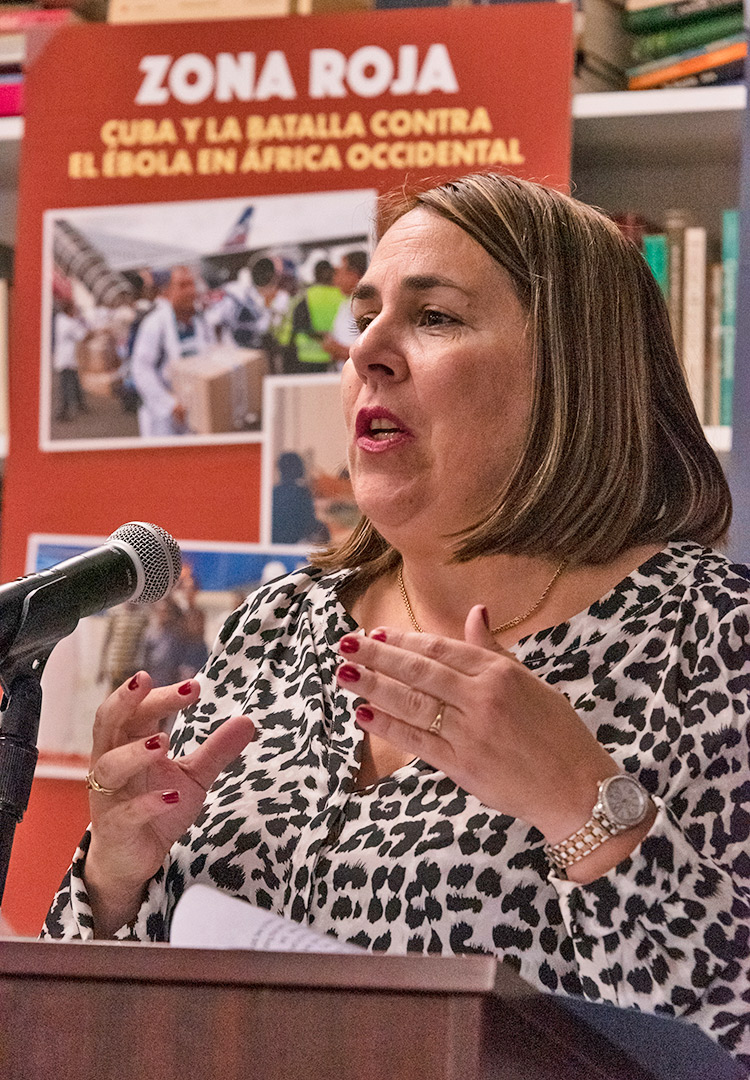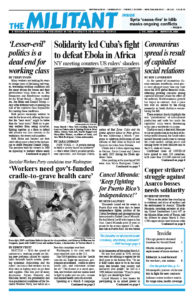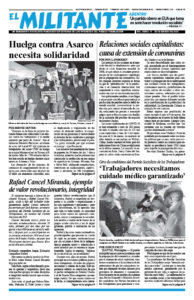
NEW YORK — “In Cuba, the neighborhood doctors are the heart of health care,” Ana Silvia Rodríguez, Cuba’s ambassador to the United Nations, said during the discussion at the March 7 meeting here on Red Zone: Cuba and the Battle Against Ebola in West Africa. She was answering a question about Cuba’s response to coronavirus.
Cuba has a doctor for every 150 people, the ambassador said. They live in the community and know the people they care for. She described what happened when she and her husband recently returned to Cuba for a visit.
“We both had the flu,” she said. After filling out the standard health form, they were each examined carefully by one of the medical workers stationed at the airport. By the time they got home, their family doctor already had been informed and was waiting for them.
“She checked on us daily until we were well,” Rodríguez said.
The same attention and human solidarity mark Cuba’s missions abroad, the ambassador said. She recalled when she and her husband were assigned to Cuba’s embassy in the Caribbean island of Grenada some years ago.
Among her responsibilities there was Operation Miracle, a program established by Cuba in 2004 that has restored vision, free of charge, to more than a million people around the world suffering from cataracts, cataract-induced blindness and other eye problems treatable by laser surgery.
“I got a call from Havana one night,” Rodríguez recalled. “We’re sending a plane the day after tomorrow to bring people here for the operation,’” a government official told her.
“I panicked,” she said. “’Who’s going to jump on a plane to go to a foreign country with so little notice?’ I called the first person on my list, a young woman. As soon as I explained she could restore her sight, she said yes!
“In no time at all that plane was full. And it was only the first.”

